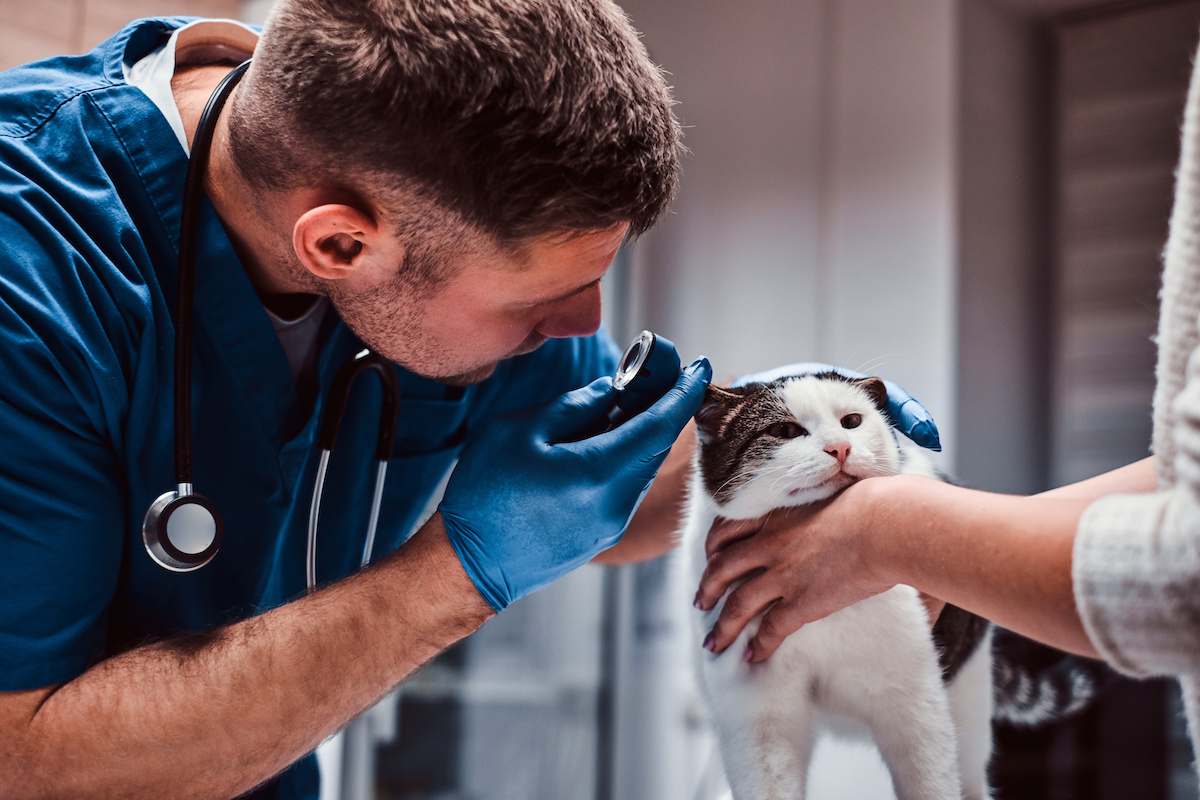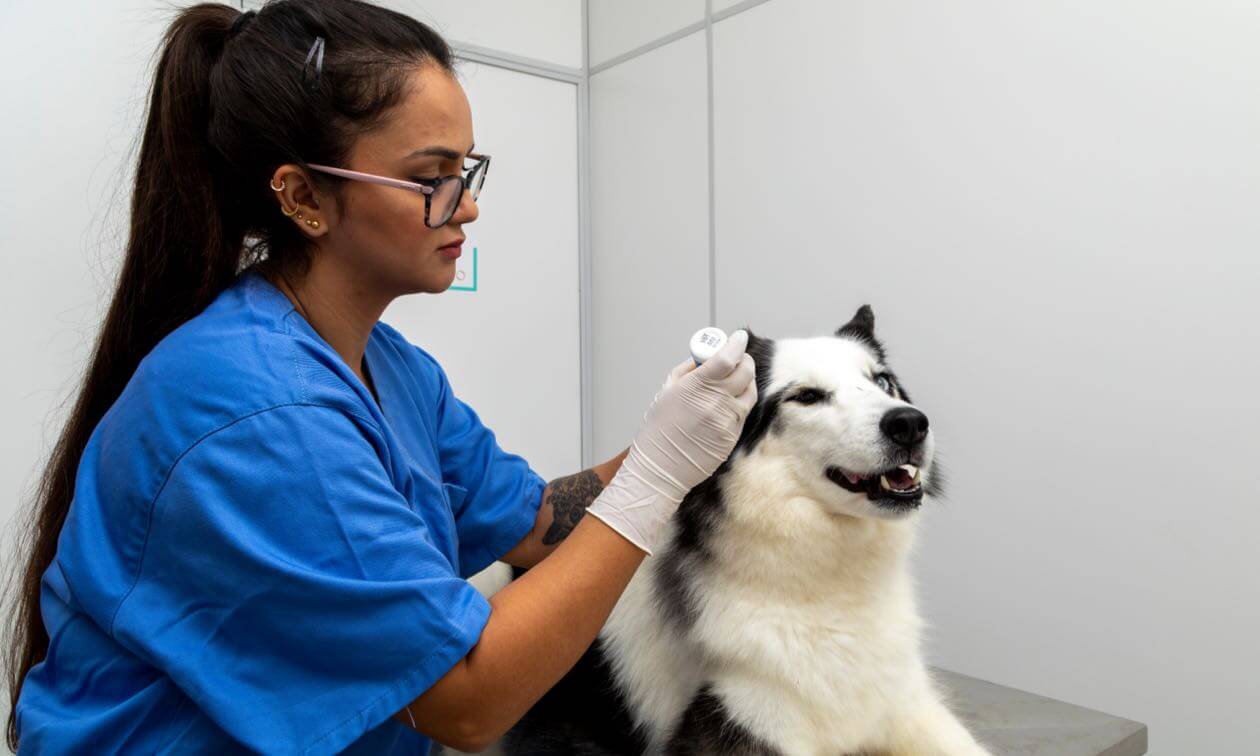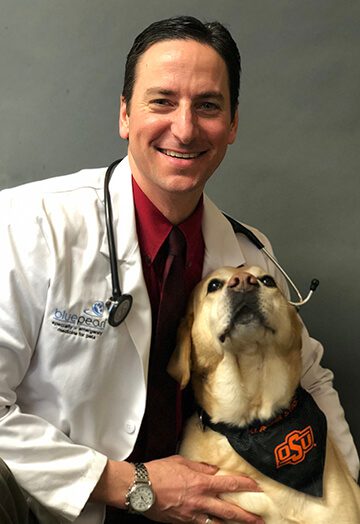The Role of Pet Vaccinations in Fighting Serious Health Conditions for Your Pets
The Role of Pet Vaccinations in Fighting Serious Health Conditions for Your Pets
Blog Article
Vaccination Standards From Your Relied On Veterinarian
Inoculation standards given by your relied on veterinarian play an essential role in securing your animal's health and wellness and well-being. Furthermore, addressing typical mistaken beliefs bordering vaccinations can further improve pet dog proprietors' self-confidence in these precautionary steps.

Relevance of Vaccinations
Vaccinations play an essential role in safeguarding family pets against a series of preventable conditions. By promoting the immune system to acknowledge and battle particular microorganisms, vaccinations significantly lower the occurrence of infectious conditions that can impact a pet dog's health and wellness and long life. Not only do inoculations safeguard individual pets, yet they also add to herd resistance, thus reducing the general occurrence of diseases in the animal populace.
Prompt inoculations help to alleviate the spread of diseases such as rabies, parvovirus, and distemper, which can have serious repercussions for both people and family pets. Inoculations are often a demand for boarding centers, brushing solutions, and canine parks, making them crucial for those who wish to socialize their family pets.

Core Vaccines for Pets
While the particular vaccination needs of pets can vary based upon specific variables, core vaccines are universally recommended to protect versus one of the most typical and major illness (Pet Health Checkup). Core injections are those considered vital for all pet dogs, no matter their way of living or geographic area, as they guard versus possibly fatal and very contagious health problems
For dogs, the core injections include those for canine distemper, parvovirus, adenovirus (liver disease), and rabies. Adenovirus can result in liver condition, while rabies is a zoonotic illness that postures a danger to both human beings and animals.
In pet cats, core injections include feline panleukopenia, feline calicivirus, feline herpesvirus (rhinotracheitis), and rabies. Feline panleukopenia is a highly infectious viral condition that impacts the body immune system and intestines. Calicivirus and herpesvirus are significant factors to upper breathing infections in pet cats, while rabies remains a critical problem for public health.
Talk to your veterinarian to ensure your pets obtain their core inoculations on schedule.
Non-Core Vaccines Explained
Non-core injections are customized to address particular threats related to an animal's way of living, direct exposure, and environment to particular conditions. Unlike core vaccinations, which are generally suggested for all animals, non-core injections are considered based upon private scenarios. These vaccines are particularly crucial for family pets that might encounter distinct pathogens due to their geographical place, travel routines, or tasks.
Examples of non-core injections include those for Bordetella bronchiseptica, which is linked to kennel cough, and Lyme condition, brought on by ticks. Animals that often communicate with various other pets, such as those in boarding facilities, canine parks, or grooming environments, might take advantage of Bordetella vaccination. If you live in a location where Lyme condition is widespread, immunizing against this condition can be a sensible option for outdoor-loving dogs.
Various other non-core vaccinations may include those for leptospirosis, canine influenza, and feline leukemia, depending upon the particular risk variables existing. It is vital to have a detailed discussion with your vet concerning your pet dog's lifestyle and the potential demand for these vaccines, guaranteeing a customized vaccination technique that ideal secures your furry close friend.
Inoculation Schedule Introduction

As pets grow, it is essential to abide by the recommended booster inoculations. Pet Health Checkup. For grown-up animals, core vaccines are commonly provided each to three years, depending upon the particular vaccine and neighborhood laws. Non-core vaccines may be advised based on way of living aspects and regional condition occurrence, necessitating a customized method
Routine veterinary check-ups are critical for upgrading vaccination timetables. Your veterinarian can supply assistance on one of the most suitable booster shots for your address pet dog, considering age, health standing, and environmental risks. By remaining proactive and educated, animal proprietors can ensure their hairy buddies obtain timely and reliable vaccinations, thus safeguarding their health and wellness and well-being page throughout their lives.
Typical Myths Regarding Vaccinations
Misconceptions regarding family pet vaccinations can cause confusion and unwillingness amongst family pet proprietors pertaining to the booster shot process. One widespread myth is that injections are unnecessary for indoor family pets. While it's true that indoor family pets deal with lower dangers, they are not totally unsusceptible to diseases, as pathogens can be presented via different ways, consisting of human apparel and various other animals.
Another false impression is that injections can create the diseases they aim to stop. In truth, most vaccines consist of inactivated or attenuated virus, which can not create disease in healthy and balanced pets. Some pet proprietors likewise think that their pets need to not be vaccinated if they are currently healthy; nonetheless, inoculations are an aggressive procedure that aids protect against the onset of health problem.
Additionally, many pet proprietors fear that vaccines will certainly lead to long-lasting health and wellness issues. The benefits of inoculation-- securing pet dogs from possibly lethal illness-- far surpass the dangers.
Conclusion
In summary, adherence to vaccination guidelines is critical for making sure the wellness and long life of family pets. Dispelling common myths surrounding vaccinations further enhances the relevance of notified decision-making in pet dog care.
Not only do vaccinations secure private animals, however they additionally add to herd immunity, thereby lowering the overall prevalence of diseases in the animal population.
False impressions concerning pet dog inoculations can lead to confusion and reluctance amongst animal owners relating to the booster shot procedure. While it's true that interior family pets deal with lower dangers, they are not totally immune to his comment is here illness, as pathogens can be introduced through various methods, consisting of human clothes and other animals.
Some animal owners also think that their pets must not be vaccinated if they are already healthy; nevertheless, vaccinations are an aggressive action that assists stop the start of health problem.
The advantages of vaccination-- securing family pets from possibly lethal conditions-- far outweigh the threats.
Report this page